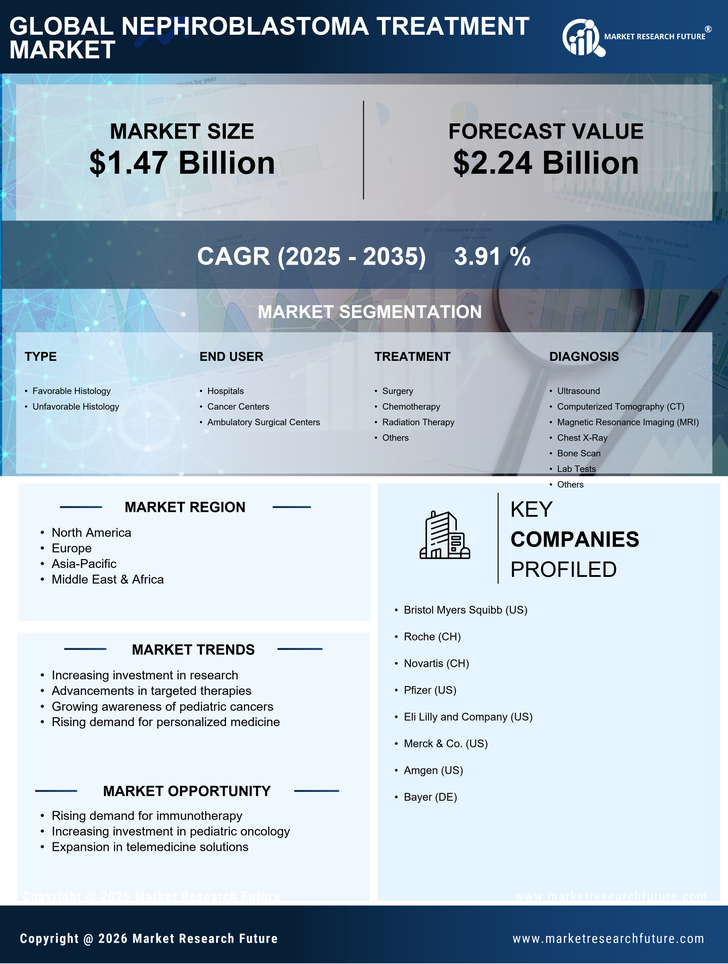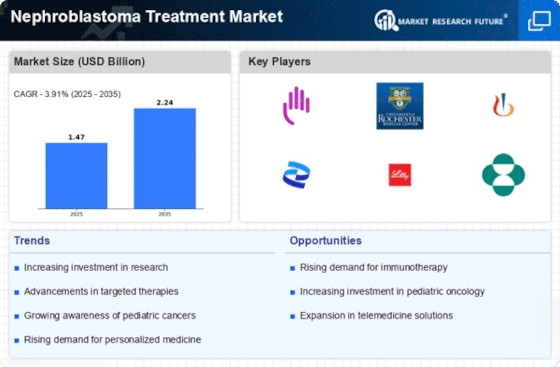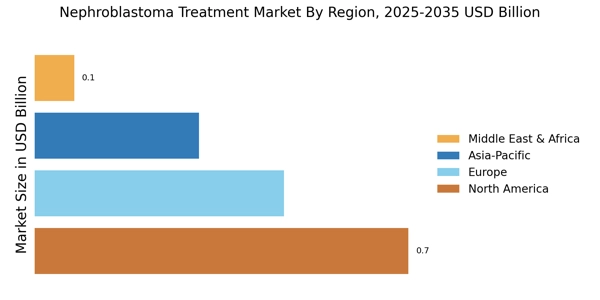Increased Research Funding
The Nephroblastoma Treatment Market is benefiting from increased research funding aimed at understanding the underlying mechanisms of nephroblastoma. Government and private organizations are allocating substantial resources to support clinical trials and research initiatives. This influx of funding is likely to accelerate the development of novel therapies and improve existing treatment protocols. As a result, the market may witness a surge in innovative treatment options that could enhance patient outcomes. Furthermore, the collaboration between academic institutions and pharmaceutical companies is expected to foster breakthroughs in the Nephroblastoma Treatment Market, ultimately leading to more effective and personalized treatment approaches.
Growing Awareness and Advocacy
The Nephroblastoma Treatment Market is experiencing a shift due to growing awareness and advocacy efforts surrounding childhood cancers. Non-profit organizations and patient advocacy groups are playing a crucial role in educating the public about nephroblastoma, its symptoms, and the importance of early detection. This heightened awareness is likely to lead to earlier diagnoses and increased demand for treatment options. As more families become informed about available therapies, the market may see a rise in patient engagement and participation in clinical trials. This trend could further stimulate growth within the Nephroblastoma Treatment Market, as stakeholders strive to meet the needs of an informed patient population.
Rising Incidence of Nephroblastoma
The Nephroblastoma Treatment Market is experiencing a notable increase in the incidence of nephroblastoma, particularly among children aged 0 to 5 years. This rise is attributed to various factors, including genetic predispositions and environmental influences. According to recent data, nephroblastoma accounts for approximately 5% of all childhood cancers, which underscores the urgent need for effective treatment options. As awareness of this condition grows, healthcare providers are likely to invest more in research and development of innovative therapies. This trend may lead to an expansion of the Nephroblastoma Treatment Market, as more patients seek advanced treatment modalities that can improve survival rates and quality of life.
Advancements in Treatment Modalities
The Nephroblastoma Treatment Market is significantly influenced by advancements in treatment modalities, including chemotherapy, surgery, and radiation therapy. Recent innovations in targeted therapies and immunotherapy have shown promise in improving patient outcomes. For instance, the introduction of agents that specifically target cancer cells has the potential to reduce side effects and enhance efficacy. The market is projected to grow as these new treatment options become more widely available, with estimates suggesting a compound annual growth rate of around 5% over the next several years. This growth reflects the ongoing commitment to improving therapeutic strategies within the Nephroblastoma Treatment Market.
Regulatory Support for Innovative Therapies
The Nephroblastoma Treatment Market is positively impacted by regulatory support for innovative therapies. Regulatory agencies are increasingly recognizing the need for expedited approval processes for new treatments that demonstrate potential benefits for patients. This support is particularly relevant for therapies targeting rare pediatric cancers like nephroblastoma. The implementation of programs such as orphan drug designations and fast-track approvals may encourage pharmaceutical companies to invest in research and development. Consequently, the Nephroblastoma Treatment Market could experience accelerated growth as new therapies enter the market, providing patients with more options and improving overall treatment outcomes.


















